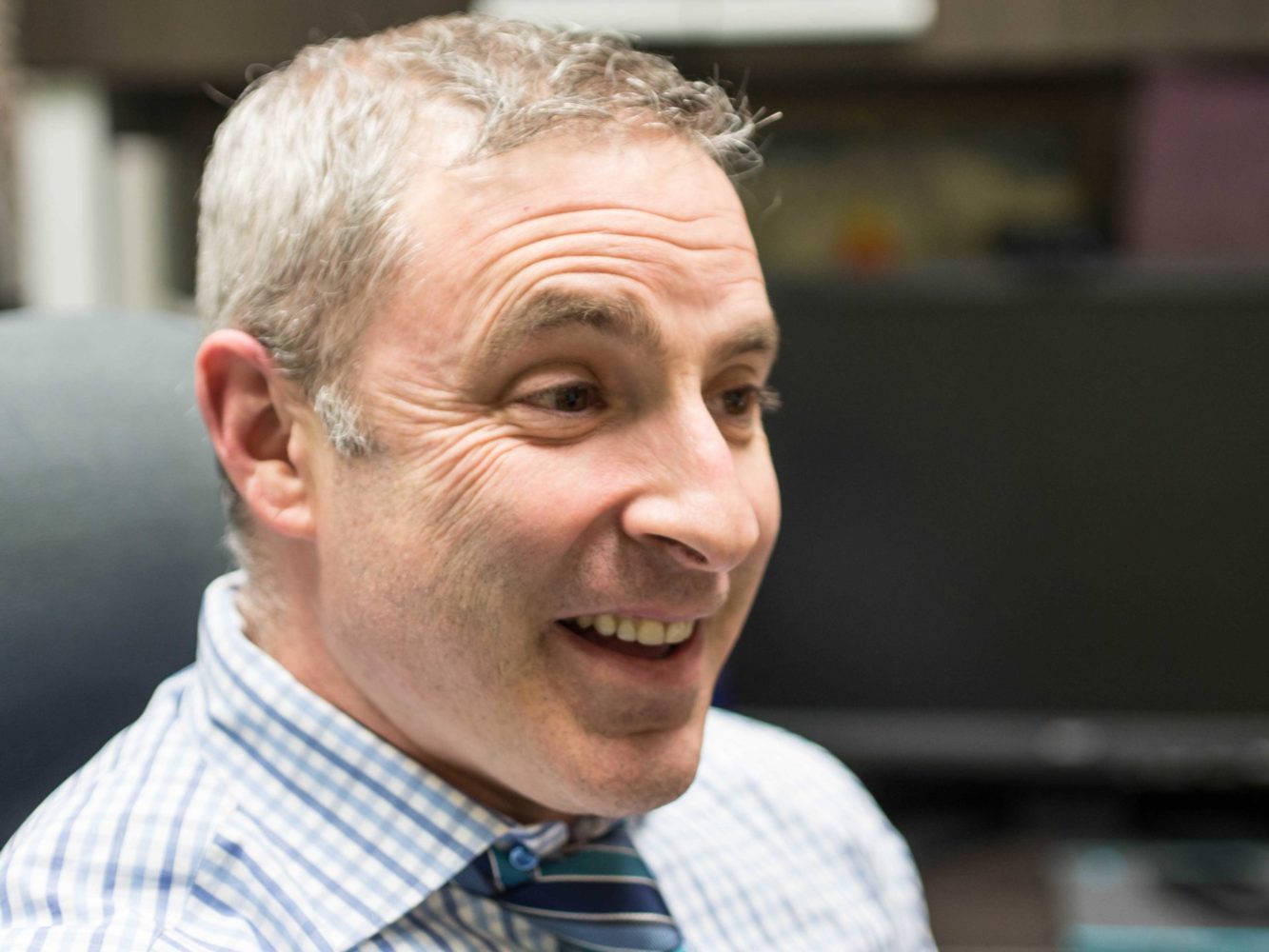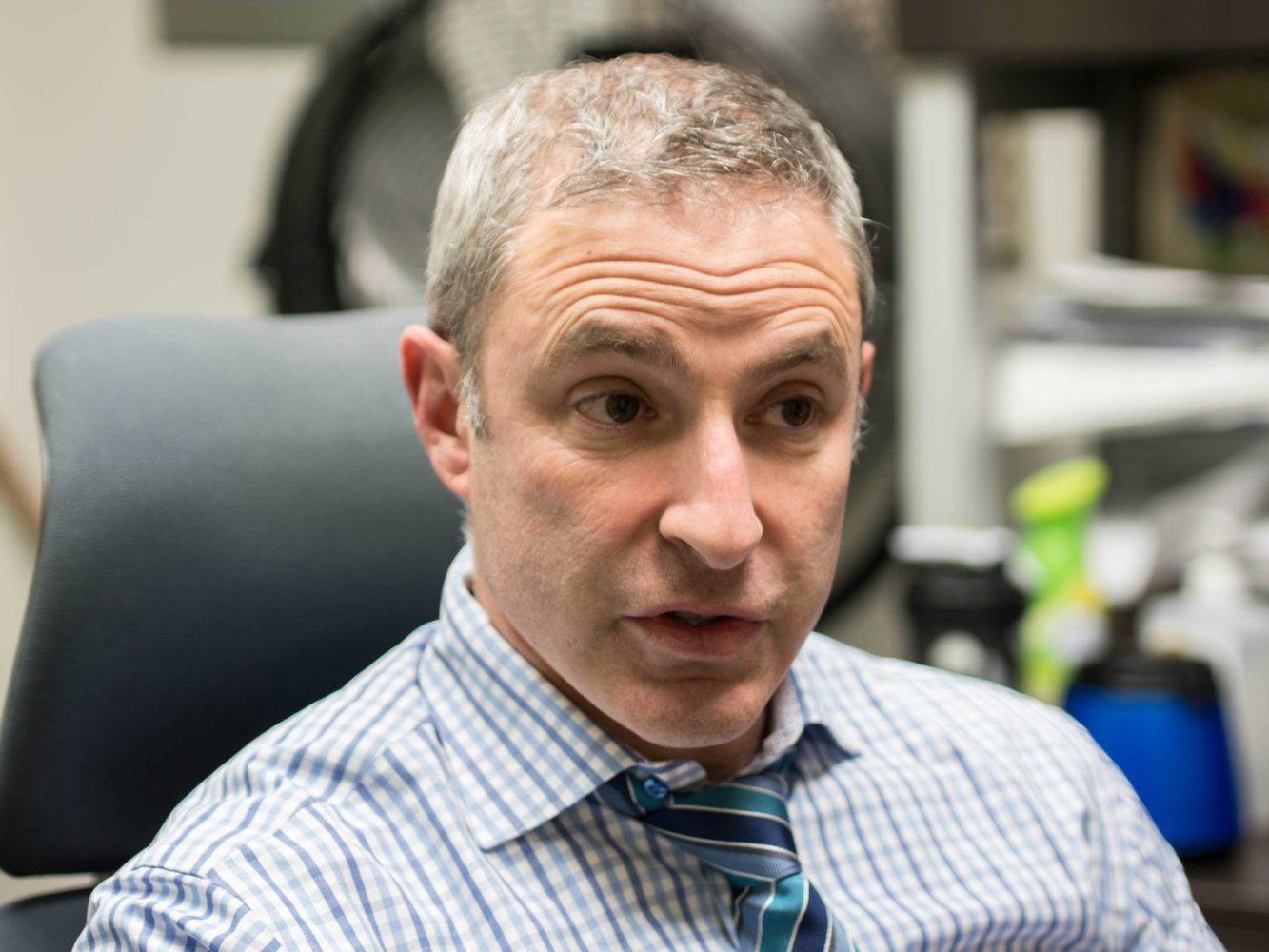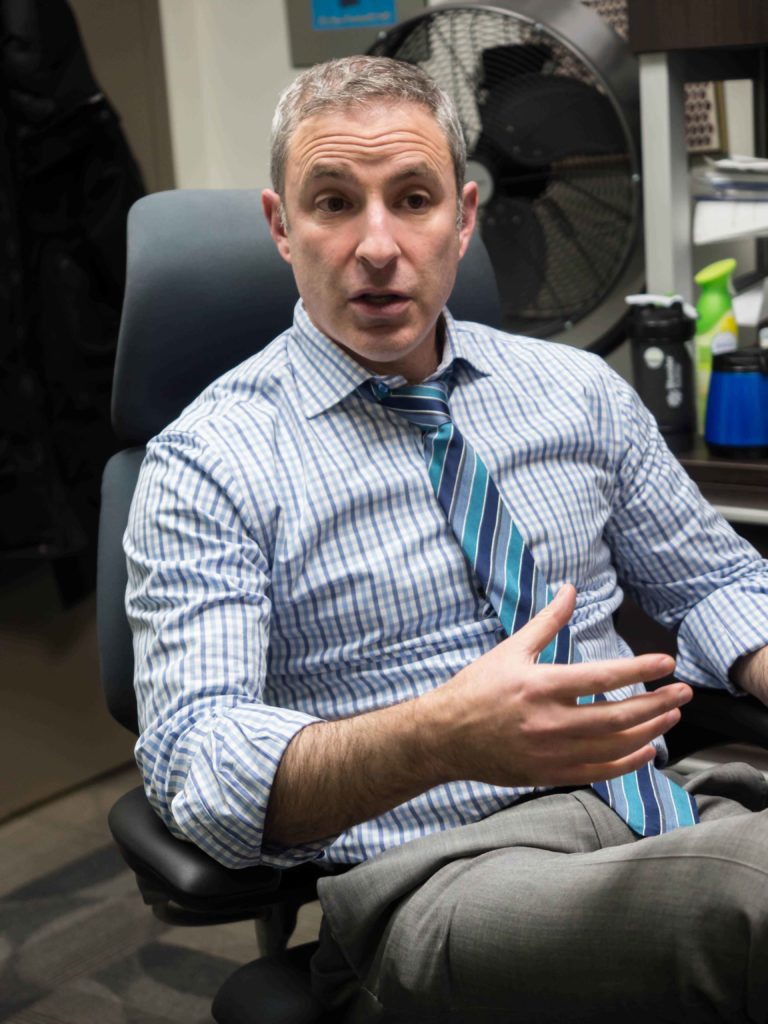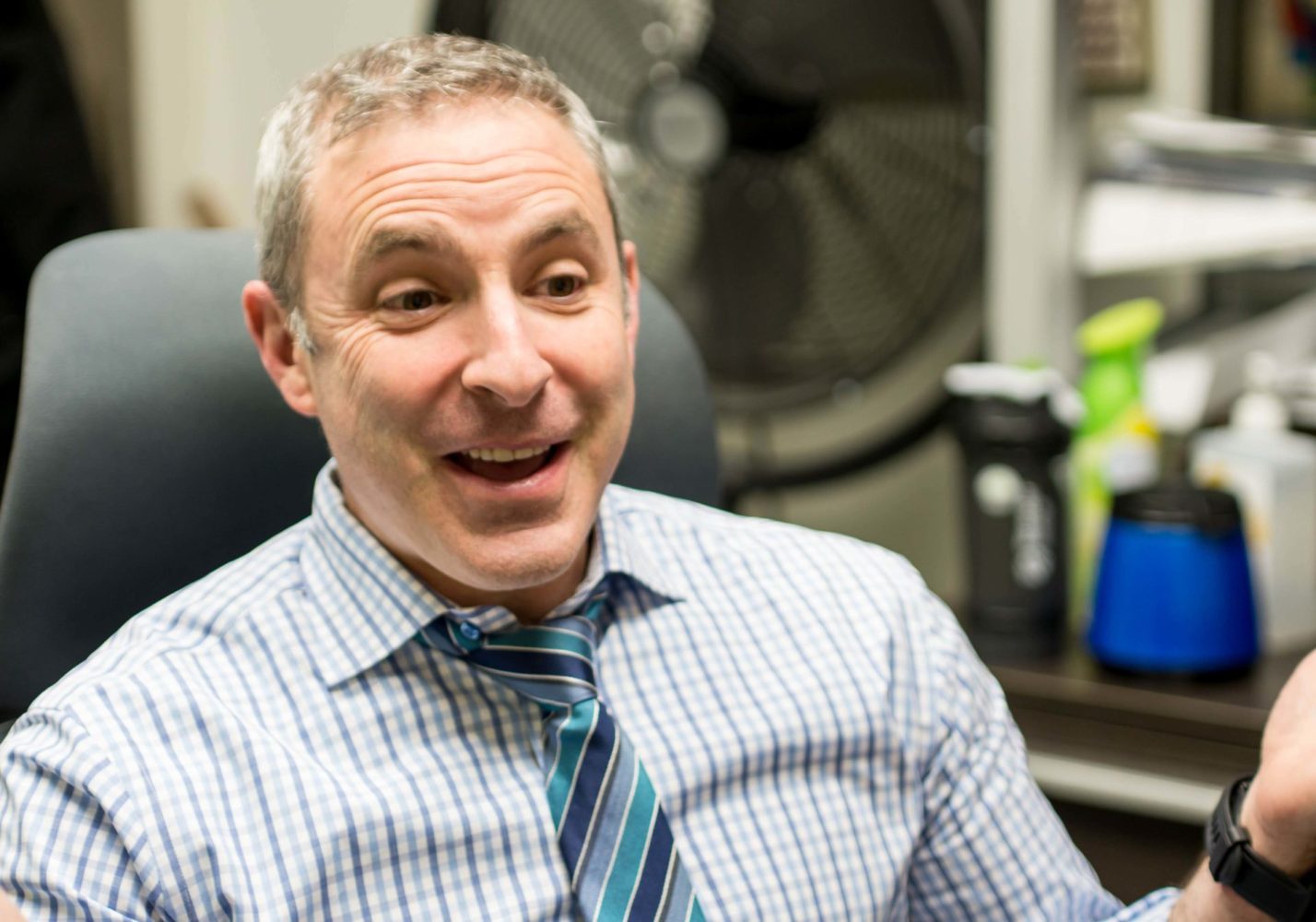Yoni is a family physician, writer, educator and policy advocate who focuses on nutrition and obesity.
“I remember actively skipping lectures on nutrition as a medical student. I didn’t have to go because we could literally get every single question on nutrition wrong on all of our examinations for the entirety of our undergraduate training and still graduate as doctors. I think the training is a little better now, but it’s not great. We need more time dedicated to the most important chronic public health concern in Canada. It’s striking to me that the majority of medical students will learn far more about some conditions that they will never see than they will about obesity and nutrition.”

“For the most part the whole world, including health professionals, is stuck in a paradigm of blame-based treatment of obesity. Obesity is something people do to themselves, and they should therefore fix it themselves. ‘Just eat less and move more.’”
The one thing people with obesity do not lack, because the world provides it to them on a daily basis, is guilt, shame, and a desire to lose weight. If those were drivers of change everything would have changed.
“The government has done a good job of making people aware that obesity is a public health concern, but we haven’t done a good job helping them manage the problem. The road to weight loss is paved by quacks. I hate to say it but it’s true. The weight loss industry is totally unregulated. Anybody can say, “I can help you with this,” and we know that a lot of what is offered is not evidence-based or sustainable.”
“It frustrates me that we have a flood of obesity and chronic non-communicable diseases that are diet-related, but rather than build levies we focus on trying to teach individuals to swim.”
“We should be banning advertising that markets food to kids. We should have a food guide that, if followed, won’t lead a person to gain weight. The guide isn’t meant to be a weight loss tool but it shouldn’t be a weight gain tool either. Invariably people say that nobody uses the food guide but that’s not true. People don’t shop with it but it is sort of our nutritional consciousness as a nation. Advertising is built on the back of the food guide. You will see ads that talk about how orange juice is two servings of fruit. That gets internalized. If the food guide actually said, ‘Eat your fruit, don’t drink it,’ that would be great. In Australia, where that is the message from the food guide, toddlers consume threefold less juice than in Canada.”
“The fronts of packages, where we allow claims to be both explicitly made and implicitly inferred, are problematic. Go grab a box of Froot Loops and it will talk about whole grains and vitamin D! I don’t think people will confuse them for healthy, but I bet plenty of harried and hurried parents will confuse it for not as bad as they thought. The packages also have the cartoon characters which we know influence things.”
“We could have zoning laws that prevent fast food or convenience stores from setting up within a certain walking distance of schools, because studies have shown a greater collection of those things around schools than would be expected by chance.”

What did you think about (New York Mayor Michael) Bloomberg’s soda tax?
“I loved it! His plan was that you couldn’t buy a litre-sized cup of Coke. I’m going with my kids to see Star Wars Rogue One. If we buy a drink there, which we likely won’t, the cups are incredible in size. Lots of robust research shows that we eat what’s in front of us. All Bloomberg was saying was that large servings prey on consumer psychology and hamstring individual choice. So, if you want to get a litre, go for it. But buy two cups. Buy as many as you want, but you can’t buy it all in one container. It was a very forward thinking recommendation.”
“Three or four years ago Tim Horton’s changed their cup sizes. They grew everything. Their medium became the small size, large was now medium, and extra large was now large. And they added a new extra large. If you went to Tim Horton’s and bought the same size you always bought, suddenly you were getting a lot more. And it was a lot more in terms of calories and potential pounds, especially if you’re a double-double drinker.”
“The whole nanny state argument is a libertarian argument that is fuelled explicitly by the food industry. They fund groups that sound like they are consumers, like The Center for Consumer Freedom, but they are really funded by the beverage industry to try and influence opinion. They had an ad with Bloomberg dressed as a nanny. It was brilliant. But when we talk about nanny states, and we deny the fact that we live in one where the nanny is the food industry, that’s problematic. They are influencing our decisions with what they write on the labels and with the sizes of foods that have grown over the years.”
If I am going to pick a nanny, do I want Bloomberg as my nanny or Tim Horton’s? I will take Bloomberg. I’d pick the one whose livelihood is not dependent on me eating more but whose goal is protecting public health.

I have three kids. The world constantly thrusts food at them to reward, pacify and entertain them. We did that as kids too. We had a pizza day, but it was once a month at school. And there were Girl Guide cookies, but they weren’t sold online and year round. And there was no Miracle Treat Day, no Slices for Smiles. We have fallen on the crutch of food to do everything for us. There is no event too small to revolve around food anymore. That’s a real problem and that’s where I see the biggest need for change. It will likely be a very slow road because now all of those things are normal. When you question something that is accepted as a social norm, people get mad at you and not at the social norm.”
How do you handle your kids when they go out with friends?
“I control my home turf. Once we were at the community centre and they were giving out cupcakes. My daughter was around six years old, and she took a chocolate cupcake. A person near me said, ‘Oh my God, I can’t believe that there’s a Freedhoff kid with a cupcake!’ And I am like, ‘Do you really think that I would say to my kid she can’t have a cupcake when all the other kids can?’ That’s not a way to create a healthy relationship with food!”
“What was gratifying was that she ate half of the cupcake and left the other half because she’d had enough. She’d been taught in my home that you don’t have to finish all the food put before you. And that you can have treats. We have dessert every Friday night. It’s about being thoughtful and measured. But this is my fight and not my kids’ fight.”
Unfortunately, the truth is not sexy or interesting, as far as achieving good health goes. Cook the majority of your meals, sleep, don’t drink to excess when you do drink, don’t smoke, have friends, ideally get married, and don’t drink your calories.
“Do all those things and you are pretty much done. But those things require real effort and sometimes that effort is not possible. I see people with incredibly difficult lives and I wouldn’t prioritize those things if I was them either. They are just trying to survive, make sure their kid graduates from school and they don’t lose their homes.”
“Labour and time-saving options are very valuable to us, me included. People will always want quick fixes, and quick fixes will always be offered that are more exciting and sexy than the truth.”
“Unlike many others, I am heartened by the pace of change in terms of how we are approaching food lately. Fifty to 60 years from now it will be a whole different world. We are just so stuck in our very short life spans. We think it’s got to change tomorrow. But if it takes three, four, five generations to get to a great place in public health, that’s really quick. It’s just that it doesn’t satisfy our need to feel like we’ve made this rapid change. And we worry about our kids and grandkids.”
“I suspect if we manage to survive as a species for 10 or 20 more generations we will be in an amazingly better place than where we are now on public health. It’s a giant cruise ship and turning it around is going to take a long time.”

“I speak, blog and tweet about nutrition because I love doing it. It also allows me to have an impact far beyond these office walls. I think that’s part of my responsibility as a physician. I don’t think every physician needs to do that, but I think everybody has the opportunity to reach beyond their office walls by writing a letter to the editor or having an off the record discussion with a politician about an area of medicine that matters to them. I don’t think that as a profession we take advantage of that ability as much as we owe our patients. I can’t deny that I get a selfish pleasure from it, but at the same time it’s something that I hope brings value to people who I will never meet.”
“In the early days I was way too aggressive. It’s not like my opinions have changed, it’s just my presentation has changed. When I wrote about something that I found outrageous I used to be keen to point out how outrageous it was with sarcasm or a snide comment, or perhaps unfairly ascribe blame to individuals when they might not have had anything to do with whatever I was complaining about. I have realized over the years it’s wiser just to explain what’s going on. If it’s outrageous, people will come to those conclusions themselves.”
“I have lots of really terrific off-the-record discussions with people who I have been critical about on my blog. If you are involved in policy or in making noise, if you are also capable of having quiet conversations that are thoughtful and you don’t personally attack people, that’s really helpful too.”


The comments section is closed.